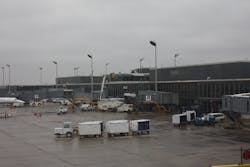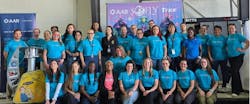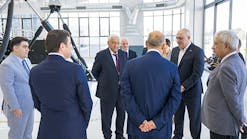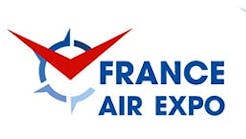In its 10th annual 2015 Talent Shortage Survey (1), ManpowerGroup describes how “The working population is declining, forcing employers to select from shrinking talent pools.” One out of three hiring managers in the USA (41,700 hiring managers were interviewed worldwide) indicated they were having difficulty filling jobs. No. 1 on the list for most difficult jobs to fill: Skilled Trades (aka Mechanics).
With that as the backdrop, I got to thinking: What could those of us who have been at this for some time learn from a newly hired training manager? GSW and GAS sent crack reporter Sidd Finch to interview and Joe Newguy, a new training manager at “Acme GSE Maintenance.”
Sidd Finch: Congratulations on your new position. Tell me about your background.
Joe: Thank you. I spent the past 20 years in the U.S. Air Force working in aerospace ground equipment. Most recently as a trainer.
SF: How did you come to work for Acme?
Joe: I finished a tour abroad and was preparing to re-enter civilian life. Acme was actively searching for a training manager for GSE. We were able to use technology like Skype for the interviews. My experience and Acme’s training needs were a good fit.
SF: Our readers know that the talent pool for GSE mechanics is shrinking. Where do you start as the manager of technical training for a GSE maintenance company?
Joe: That is a great question. We started by clarifying who we are and what we do. Then we made a list, a big list, of our needs. Then came prioritization of the needs.”
As an example, ‘Who are we?’
As you know, a mechanic is technician who repairs and maintains machinery. The aviation industry is the global transportation network that carries passengers and cargo by air. Ground support equipment (GSE) is the machinery on the tarmac of an airport which helps passengers, cargo and airplanes come and go from the airport. A GSE mechanic then is a technician who repairs and maintains equipment for businesses serving the aviation industry.
‘What do we do?’
Acme hires, trains and deploys GSE mechanics at airports around the country. All we do is GSE and fleet maintenance for the aviation industry. Our customers are airports, passenger airlines, cargo airlines and the companies that provide services to airports and airlines.
Here’s where it gets dicey. GSE mechanics fix catering trucks, baggage tractors, deice trucks, passenger stairs, cargo loaders, GPUs, AC units, baggage carts, buses, pushback tractors and more. They work on equipment from the 1980s, '90s, 2000s, 2010s, and I can’t even list all of the different manufacturers.
Technically speaking they need to be able to paint, weld, and complete diagnostics and repairs on electrical systems, fuel systems, gas, diesel, propane and electric, and hydraulic systems. They have to be technically proficient on chassis, engines, transmissions, lift systems, pumping systems and more. We could add safety training and computer data entry training but Acme has a manager of HSE to handle safety training and our national managers handle customer-specific data entry training.
SF: That sounds daunting. Where do you start?
Joe: “We did an assessment of the most important needs:
Improving the technical proficiency of our existing staff. There are really three reasons for this need:
- Customers expect us to get the work done regardless of vacancies, vacations or any other reason a position is open on a given day. Mechanics on the job must be very productive to meet daily demand Best practice training can improve daily productivity.
- Aviation industry customers expect their costs to go down despite increasing wage rates, higher benefit costs, higher real estate costs and aging GSE fleets. Teaching mechanics better diagnostic skills can directly impact customer costs.
- Retiring mechanics take with them a lot of tribal knowledge. It takes a lot of hands-on experience to become a GSE mechanic that is very good at fixing cargo loaders, GPUs and deice trucks. All those new mechanics will have to be trained on all of that specialized aviation industry machinery.
Training new hires. These fall into two categories.
- First, Acme has roughly 200 mechanics. On average our monthly job vacancy rate is 5-6%, meaning 10-12 positions are open. Those positions exist to meet customer commitments. They generate revenue every day. Ten open positions represents about $1 million. We need to get those positions filled and the new hires quickly up-to-speed.
- Second, Acme added 50 new positions last year and is budgeted to add 50 more again this year. There aren’t 50 qualified GSE mechanics looking for work in the U.S. To fill those positions we’ll likely have to hire non-GSE mechanics and teach them how to be GSE mechanics.
SF: Some might say that is more work than one manager of training can accomplish.
Joe: Very true.
SF: So what comes first?
Joe: We’ve decided to focus on two needs we think will have the most impact:
- Electrical diagnostics training: Just about every GSE mechanic could use either a refresher course or certification on electrical diagnostics of motorized, GSE equipment. Better diagnostic skills should then impact technician productivity as well as customer costs. We expect mechanics with better diagnostic skills will spend less time trying to figure out a mechanical problem. They are also less likely to fix the wrong problem which should reduce repeat repairs.
- PM methods: Doing PMs and doing them well improves asset reliability and safety while reducing customer costs. PMs performed efficiently improves mechanic productivity helping with the need to ‘do more with less.’
SF: I travel a lot. Looking out the window of the airplane when it’s at the gate, I’m always hopeful the people that work on all that equipment have done a good job keeping it maintained. Good luck with your new position.
Authored by Rob Root, VP of Business Development, Global Aviation Services, a leading GSE maintenance provider headquartered in Eagan, MN.
(1) www.manpowergroup.com, 2015 Talent Shortage Survey White Paper (Excerpt), accessed July 17, 2016 http://www.manpowergroup.com/wps/wcm/connect/manpowergroup-en/home/thought-leadership/research-insights/talent-shortage-2015/talent-shortage-2015





